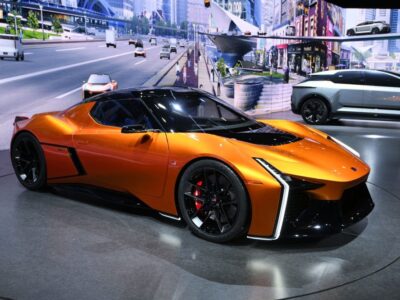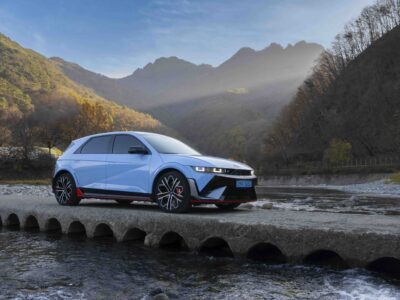Governor Whitmer of Michigan announced the upcoming launch of a new pilot program to broaden the feasibility of electric vehicles throughout the state. The program – the Inductive Vehicle Charging Pilot – will install wireless charging infrastructure into pre-existing roadways in a to-be-determined suburb of Detroit (currently, there are three communities under consideration).
The technology will allow for electric vehicles to recharge their batteries while driving normally, eliminating the need to stop at a rest stop or garage for a fresh charge.
Specific plans, including rough costs of installation and operation, have yet to be released, but a request for proposals (RFP) was issued on September 28, 2021. RFPs are detailed program information released to the public that allows private companies to bid for the job. Michigan’s Department of Transportation will in turn award the project to the most favorable bidder.
The exact timeline for the project remains unknown and will be dependent on specific responses to the state’s proposal.
Michigan is not, however, the first state to launch a program with this targeted outcome, but they are slated to be the first to make it publicly available. Indiana, which shares its northern border with Michigan and has been undergoing rapid expansion of its EV infrastructure, launched a similar project in July 2021. This project remains in a controlled research facility in West Lafayette and is not scheduled to hit the (real) road for one to two years, according to Scott Manning, a spokesperson for Indiana’s Department of Transportation.
Although reminiscent of Indiana’s program in functionality, Michigan’s Inductive Vehicle Charging Pilot is skipping over the research-facility phase, and going direct to public roads. Michigan is able to do this in part because of their ongoing, extensive rejuvenation of public roadways currently, meaning the technology can be installed without more disruption to infrastructure than currently exists anyways.
“We’re rebuilding infrastructure in Michigan. Orange barrels are everywhere. It’s important that we’re rebuilding, but we’re doing it in a resilient way that supports advanced technology,” Governor Whitmer said to the press at this year’s North American International Auto Show, which Detroit is known for given its fortified history of automobile innovation.
In other words, the roads that will be selected for the pilot are already closed or under extreme construction, and this project will make no meaningful difference to that.
Michigan has outlined a plan to become carbon neutral by 2050 and this project is designed to contribute to that goal, says Whitmer. The Governor, who is in her first term and has faced unprecedented challenges across nearly all policy areas, described herself as “laser focused on growing our economy, creating good-paying jobs and building the future of mobility and electrification […] in Michigan.”
She is not a stranger to clean vehicle policies, and in 2019 she released the Lake Michigan EV Circuit to expand accessibility to EV charging ports along the Great Lake.
Detroit is arguably the U.S. epicenter of the automotive industry – an unofficial title since the late 19th century. Propped up by the copper and iron ore markets of neighboring states, the midwest metropolis saw outstanding economic booms and industry established in the early to mid 20th century. Although the ease and cost-effectiveness of international manufacturing have curbed Michigan’s comparative prosperity versus a century ago, innovative transportation technologies and businesses remain a cultural pillar and point of pride for the state. The city continues to be a center for innovation for electric vehicles and a major source of reliable jobs in the clean energy industry.
Electric vehicles remain a challenging hurdle for more rural states, particularly those with extreme colds for much of the year. Range anxiety or the fear that an electric vehicle will not get passengers from point A to point B has been a major obstacle in the adoption of what is likely the future of transportation. These roadways have the ability to alleviate those fears and provide smoother operation of both public and private vehicles that are fully electric.
Michigan was the first state to have a full mile of paved road, Whitmer reminded constituents in a written statement following her appearance at the auto show, and they are on track to be the first with an electrified road, too.





